Pollution and the environment --- A review on Earth's air, land and waters.
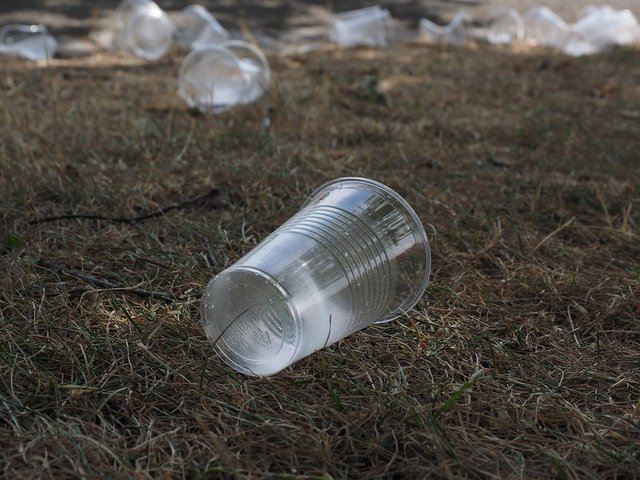
Hey guys, good day, been trying to make these articles every now and then. The week started as a drag, but things are gradually coming to. Don't worry, you won't get it, and I'm really not in a talking mood, Unless it's science, of course!
So, the other day, I was traveling back from school after a long semester that seemed like it wouldn't end and looking out the window of the bus, I couldn't help but notice how bad the streets and roads were. Empty cans and plastics, polymer wastes and stuff all scattered around a major highway somewhere in eastern Nigeria. Sure, I'd very much have loved to mention the place and maybe upload a picture or two to add to that effect if I wasn't oh so patriotic. But where would that leave us anyways? all talks and no action?.
After doing a bit of research late at night on the gravity of what seems to be neglected, I decided what the hell, it's high time someone raised some awareness! it's pretty sobering how much we've let things slide.
How much trash do you think you throw away on a daily basis anyway? I know it's a lot harder to keep track of stuff like this than it is learning to ride a unicycle. I mean, after all, it's trash! ain't that? Out the window and it's off the mind!
But before you go thinking this article is about Africa alone, you might be just wrong, you see, it concerns all of us, and waste management is a global issue. Did you know that in the U.S., each American on average tosses out just about 2 kg of unwanted stuff and food items every day?. From production in factories and manufacturing hubs to consummation at different levels, humans constantly generate wastes, and as long as we're here, we just have to find a way to deal with all of it because it cannot be banished from existence by simply wishing it goes away, or even hauling it into the curb.
What are we looking at?
Well, wish all you want, but some of these wastes we generate are potentially harmful to health and the environment too. For one, a whole lake could be rid of its aquatic life if toxic chemical wastes aren't taken care of or disposed of properly. The exhausts of automobiles, and power plants using fossils release tons of gases that are pollutants to the air we breathe in our cities and towns, Nuclear wastes, perhaps the most deadly, is said to be just s toxic as it is today in 20,000 years time. It's dead serious, and would be the most monumental let down if we're to believe that somehow, the environment could absorb and neutralize all of the effects of these pollutants without some backlash. C'mon, let's get serious!
The problems. -- Pollution's toll!
The pollution these wastes bring about isn't inconsequential at all. No matter how much we neglect it, slowly yet surely, it has petty effects here and there, which coagulate to bring on some serious damages to health and general safety of the nation.
A century of unrestrained pollution has seen rainforests and lakes rendered almost lifeless. Did you know that over 80% of Poland's deep wells are polluted? and that about 1/4 of its soil is way too contaminated to be of any use to agriculture? Sad, isn't it? How about Bulgaria, where about 1/3 of its forests were damaged so badly by air pollution and acid rain (acid precipitation), so much that intensive efforts had to be put in place to curb and reverse the damages?
I guess you could understand that it isn't just talking, these wastes actually bring along with it far more expenses and damages than it would have cost if they were managed properly.

Endangered waters.
Even though every human -whether educated or not- seem to understand the dire need for water in order to function in the circle of life(and for a host of other things), we've put on a darn good casual attitude towards it, and have not treated it with the urgency it deserves.
Every single day in homes and offices across nations, wastes are poured down sinks, flushed down toilets or dumped into rivers and lakes without considering where they might end up. These substances end up killing sea life and damaging beautiful corals and shorelines.
For starts, how about an example; Remember the Rhine river pollution in Switzerland? the date was November 1986, where about 27 metric tons of mercury and pesticides were washed into the river Rhine by ignorant Fire-fighters? The Rhine was and still is considered as the most important passageway of water through Germany. Long story short, a deadly wall of poisonous pollutants flowed down the Rhine and killed every sea life it could get to, all through Germany to the Netherlands. If you ask me, I'd say someone probably faced some serious jail time.
The Rhine poisoning cost a lot of money to the government and had serious economic effects as well, but it's just one of the many examples of water pollution that has occurred over time.
In my country, Nigeria, The Ogoni people in Rivers-state (a people whose primary source of income was fishing and farming), have suffered a lot of hardship, as a result of the 1970 Shell BP oil spill. Farmlands, wells, and rivers were affected as over 1.5 million barrels of crude oil flooded the community. Well, it's been decades now, the company was fined millions of pounds, and word out on the street is that it would most likely cost $1 billion and would require 30 years to restore the environment to its optimal state.
Fast forward to the not-so-distant-past; 1989, when the Exxon Valdez oil tanker ran aground off the coast of Alaska. We probably realize how massive these tankers usually are, not to mention that the Exxon Valdez was on its way from an oil drilling rig, loaded with oil. Well, as soon as it sank to a certain depth, the pressure at that depth of the sea ripped open the ship's hull, and tons of oil spilled out into the sea, destroying coastlines and seashores as well as killing fishes, birds, seals, and mammals due to poisoning!. I didn't get into the details quite much, but it sure took a hell lot of money and resources to clean up the damages, I can tell you that!
The rate of chemical wastes in rivers and lakes in cities are quite alarming, and some of that stuff are carcinogenic (can cause cancer). Hence, it comes as no surprise to us that the highest rate of people with cancer are those who live in the riverine areas (like the Mississippi Delta in The U.S.), as compared to houses under major power transmission lines! Our beaches are becoming less safe with every passing day.

Destruction of land.
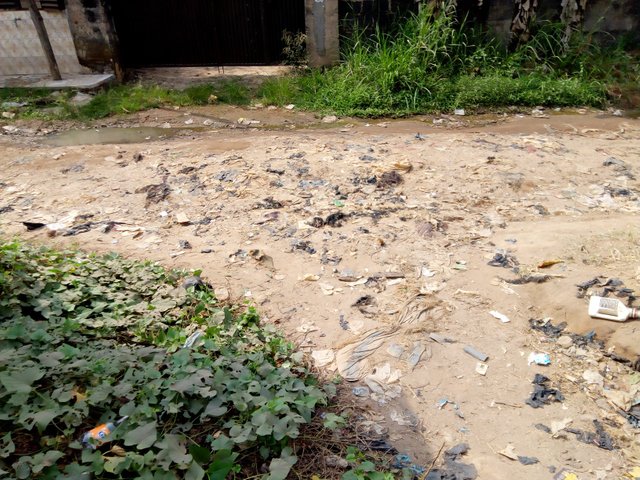
Modern agriculture has come to rely heavily on mechanization, fertilizers, and pest control methods using pesticides for greater yield. As good as it seems, there are consequences that at least someone (like myself), shouldn't fail to point. Frankly, the excessive use of fertilizers is probably not the best thing to do, since it does damage the soil by of-setting its pH value, just like the waters we discussed earlier.
Also, don't we all just love how easy it is to preserve stuff in plastic cans and wraps? Sure we do!, and I'm sure you know that recently in several towns and cities, Polymer materials constitute a major source of land pollution. For one, these plastics are out-rightly die-hard and non-biodegradable, hence they are difficult to control as wastes. In localities where there are no faucets for recycle, these plastic containers and waterproof nylons eventually find their way to becoming environmental pollutants since they are either jilted or burned. By burning, it simply doesn't go away, Polymers are made of long chains of carbon, and combustion is known to yield CO2 when stuff made of carbon is burnt. As such, burning polymers increase the level of greenhouse gases in the atmosphere. As for simply jilting or throwing away polymer-based materials, well, take a look at the picture above, and then this one.
Yeah, it's crazy, the images were taken somewhere in my school surroundings, and I once shared it with a friend of mine when she made this post on littering, totally worth reading, later, of course. Normally, over 80% junk is tied up in nylon based materials and thrown away. Over time, while its content may decompose, they get into the soil and block plants from taking root and could lead to desertification. They also find their way into rivers, get stuck and clog up channels. Did you know that polymers have been known to kill animals when they get entangled?
Also, there's the use of fossils for electricity generation, which is a stand-alone problem on its own. Many coal-burning power plants use high-sulphur coal because it's cheap and easy to come by. The smoke produced by its combustion smells so terrible that local trees are killed, and window panes are darkened, so much that these Power plants had to raise the height of the smokestacks by about 70 metres, with the hopes that the smoke won't affect trees and homes and that people would just shut up already.
So, did it work?
Well, not exactly. You see, while house owners stopped complaining about waking up to dark window panes and foul-smelling odour, it became pretty clear soon enough that tall stacks didn't eliminate the problems at all. Turns out it only transferred the effects somewhere else.
As soon as these sulphur atoms get high in the sky, they combine with water vapour, and fall back as a kind of rain we've come to know as 'acid rain'. Speaking of acid rains, I do remember when it was in the forecast years ago. I was much younger, and The media just wouldn't stop talking about it. Lovely, dear Mom; She made sure we remained inside for the rest of the day as soon as the rain started.
Since moisture travels a lot farther in the atmosphere, is it possible that the acid rain could vent its anger somewhere else, far from where the smoke was generated?
Yup, That's exactly what I'm implying. As the acidic moisture is carried about by wind in the atmosphere, people and places that aren't entitled to the benefits of roasting fossil fuels get to be punished.
Rainforests and grasslands are slowly ebbing away, and some have died from the increase in acidity of the soil. To be factual, when acid rain occurs, it reduces the pH score of the soil. The range is from 0 to 14. 7 which is the middle, is neutral, and is the pH value of drinkable water. Towards 0, the scale becomes more acidic, and towards 14, it becomes more basic.
Want a live instance? Sure! The U.S. generates over 80% of its electricity by burning fossils and is mostly affected by acid precipitation in the north-eastern forests and in southern Canada. These areas, though hundreds of miles away from the nearest coal-burning plants, weren't spared.

Air pollution.
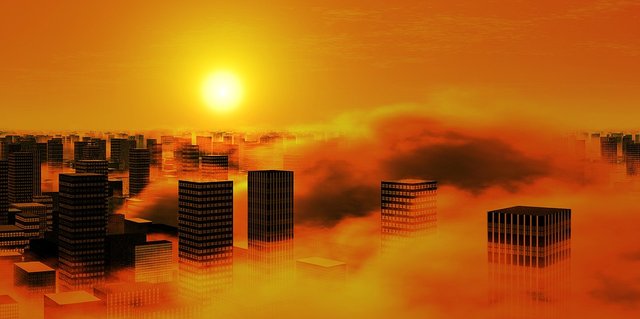
I had previously talked about man's activity and air pollution in my articles on the ozone layer and the greenhouse effect. In case you missed them, there are the links, but keep reading on, I promise to include the links again at the end of this article.
Before the acid rain ever occurs, the atmosphere would have long been affected by the fossil-based smoke already. While a part of its effect is the depletion of the ozone layer, the other is on the increase of greenhouse gases, hence making the planet even hotter. If the ozone should further decrease, we may experience sunburns and develop Cataract (an eye condition that may lead to blindness if not treated). Shockingly, experts estimate that each 1% drop in the atmospheric ozone leads to a 3% increase in the risk of skin cancer. Thus the already recorded 6% drop is estimated to have increased cancer rate by 18 to 20%. In addition, with the 6% increase in UV hitting the earth, the basis of all oceanic food webs -the ocean's planktons- has declined productivity. Global warming is rumoured to be looming around the corner, and scientists think that the world's average annual temperature would rise by 1.5 to 4.5oC by the year 2100. By simply looking at it, it doesn't look like a big deal, does it? But global warming could have disastrous effects on the earth's climate pattern. Ice caps could melt and cause sea level to rise, even tall houses might be flooded. Rainfall would be affected and we could see droughts and possibly famines and all of that ill.

Summary.
In my opinion, the environment could use a little bit of love and care from its inhabitants, Humans. Some things such as these shouldn't be taken as lightly as it is today. There's a lot of things we could do to turn things around, a lot of alternatives we could consider as energy sources, and other ways we could dispose of our refuses without turning them into pollutants. But it's not just gonna be one person, or a small group of people. It's gonna require the effort of everyone who is involved, and that includes you, I, and everyone else breathing oxygen.
Heck, there probably would have been a lot more to say if I were some future seer or at least a professor at this, but I'm simply an informed and concerned earthling. As such, I feel this article has gone on long enough, and I hope it has served its purpose of informing and educating, and I hope it was easy to understand. The good news is that; There are possible solutions, and some of them are being enacted as we speak. how about we get to discuss these solutions in another article, eh?
Was that a nod?
Well then, thank you!
PS: here are the links I promised.
Our sky's interaction with radiations-- The ozone and Greenhouse effect -- Earth's jacket.
References.
Steemit post. Littering and its effects on the environment.
Rhine river pollution
Pollution, Britannica.
Fossil power plants.

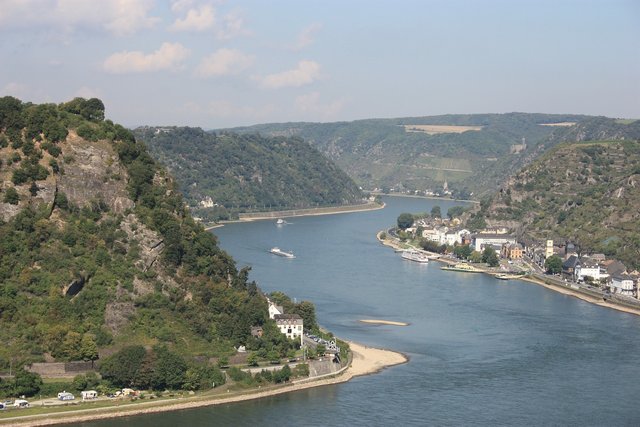
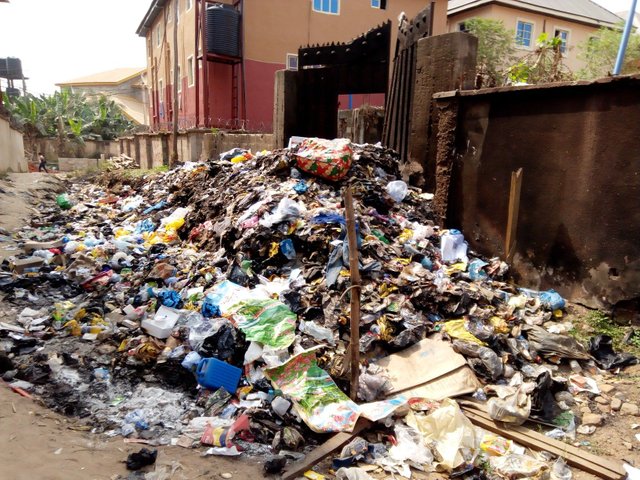
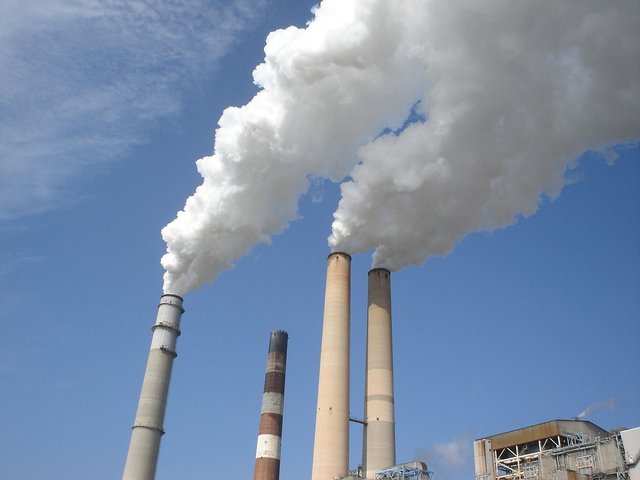
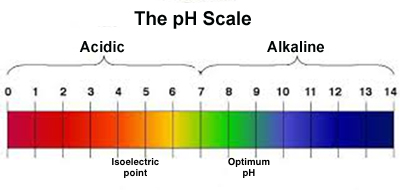
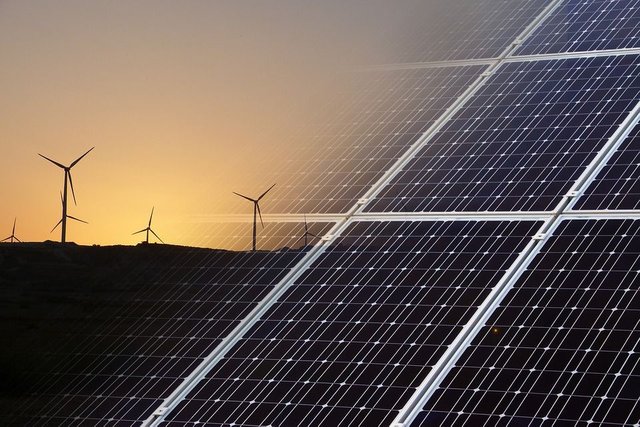
Iz just a shame... All the plastic in the oceans is so weird. Makes me sad. Good write up. Followed
I did find a cool article today. There is something (an enzyme) that could degrade plastic by eating it up.
https://www.theguardian.com/environment/2018/apr/16/scientists-accidentally-create-mutant-enzyme-that-eats-plastic-bottles
Yeah people just think throwing their trash everywhere will not have any effect at all. We even have a song by a band abt throwing trash properly which was effectively used by the government to remind all of us that the waste we throw away unproperly comes back to us as flood, water contamination, food scarcity etc.
Usually the biggest culprit or polluters are big companies with big money trying to make more money. Ugh.
I also care abt the environment, it's one reason why I wrote my Sea Cucumber post too. (It's not about pollution but it's environment centered to bring awareness on what the effect of overharvesting them creatures does to the environment.)
The only things we small people can do is organize small cleanup teams locally or create a cleanup/no littering campaign and such. It's good there are also big groups like Greenpeace who are out there fighting for the environment.
I even discovered that avocado seed starch can be used to make bioplastics when I did my research on it after cooking/experimenting on the seed, isn't that amazing?
Wow, i never knew about that. I have read on bioplastics though. if these things are available and cheap, we should start seeing more of such items replace the conventional non-biodegradable plastic.
I will be checking Your article on Sea cucumber now. lol. i'm sure it would be quite the adventure for me.
Thanks for reaching way down to get this one dear.
Yeah saw it in your latest post links somewhere, that psychology post... Hope you like it too when you get to read it. That was like a week or so ago. :D My latest research was all abt mental health... Haha.
What a sad post... Bloody humans. We should not only care a little bit more, but also try to act. Like using less energy here and there, less plastic, less this, less that. If everyone does a little something, this will be great for the planet.
Well I was just about to read an article of yours, but now I'm thinking how much energy that would cost, both my screen and my bodily upkeep. What to do, what to do...🤔
😛
I suggest to skip the article and meet for a beer. I will explain the topic lively :)
Hahaha!
True. We do so little, and that's because somehow, it seems we do not sense the direct effects every day. Some people hardly ever get sick, and all that. However, on the environment, there's constant degradation.
Also, a lot of people buy stuff on impulse rather than need or even want. The more unnecessary stuff leave the shelves, the more trash we generate, the more we dump 'em.
Thanks for coming around sir. :-)
Yeah, thinking sometimes becomes optional! Who does need 2 laptops and 4 cell phones, for instance? Well, many!
No, we're equally filthy here in Cyprus :P It's like everyone grew up with a maid or something, always expecting someone else to clean after them!
I'm surprised the Bushes didn't invade you.
This is a well-written article, both style and content. 👍
Lol. Thank you Alex.
I think I know the 'mine' pics... Haha. Nice work _Wisdom and not @pangoli.
That street behind our lodge. crazy place, i think it might have been one huge dumpsite at a time.
And the locals there can't even see that things are not the way they used to be... I just wonder
When it comes to plastic pollution, I think Nigeria comes first. I wish the pure water, water packaged in cellophane bags, could be banned as it helps generate the most plastic in any refuse dump site.
Those things come cheap, i suppose that's why. And then, it's useless. lol.
With the current economic hardship in Nigeria, if some organization should come up with a way to incentivize people for helping recycle them, we could see people put it in their bags to earn money, and we get a cleaner environment in return.
The scavengers are already making a killing.
Would you look at that. lol.
Excellent!
Even though the idea isn't fancied by a lot of people at all (me inclusive), it makes one refrain from the generalization "there are no jobs in nigeria"
There are jobs, just that many are not for the faint of heart.
Everyone is a stakeholder as we are all inhabitants of this one and only mother earth. Each person can contribute something to advance environmental pollution, one of the topic widely discussed which is caused by environmental toxic. i love this post thanks
Thank you for leaving this comment bro. Even though there has to be a drastic change or some kinda program to enact some rules, everyone is involved, and could start doing something on their own to save the environment. The joke's on us now. lol.
https://www.youtube.com/paulbegley34
A well written article man. Global warming is quite a concern for me. The planet has only gotten hotter. The heat I’ve had to experience at times have left me even more worried. A lot has to be done. Alternative forms of energy have to be explored. Wastes must be properly disposed off. We need to show more love to our environment. Oxygen is the only air that can keep us alive yet we don’t try to experience it’s pure form. Are we just stupid or careless or both ?
I’d love to see the solutions that have been found. Looking forward to your next article.
Frankly, i think we're both. lol. These are really pressing issues. just because it doesn't threaten to decide who stays on military power doesn't mean it should be neglected. It seems that's all we care about.
Well said
I actually think there is a lot of problem with this country one of which is wastage. We do not learn how to recycle. So many waste just lie everywhere and we don't know how to reuse them.
I for one if i had the money i would venture into recycling saves the environment from pollution and waste.
Rooting for you.! ;-)